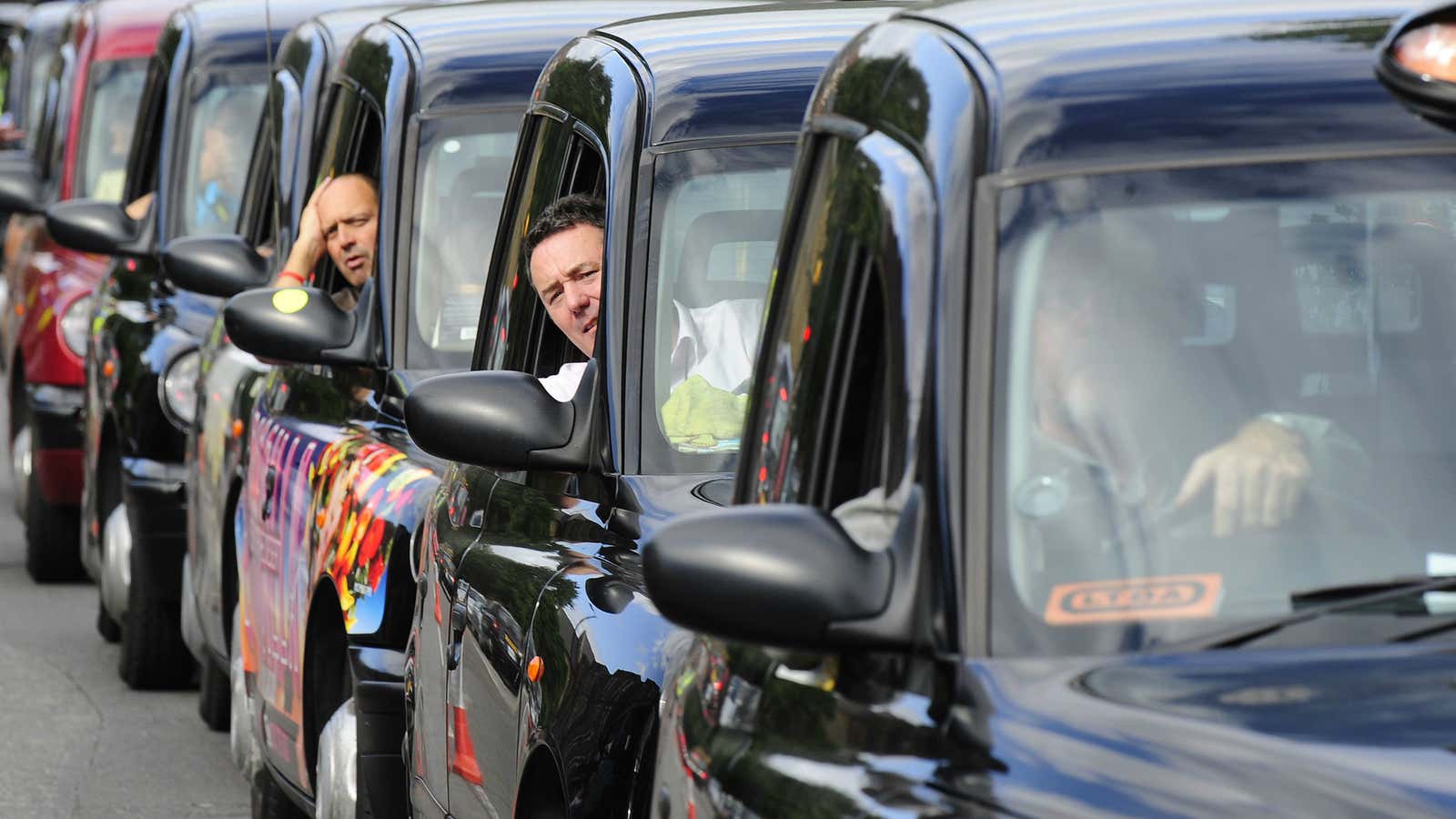British English has many distinctive hallmarks: a plethora of “u”s borrowed from old French, a use of “s”s where “z”s are used in American English (realise, instead of realize), colo(u)rful idioms, and a rich history of slang.
For lexicographer, writer, and broadcaster Susie Dent, British English is also “littered with tribal footprints,” as she explains her new book, Dent’s Modern Tribes: The Secret Languages of Britain. In the book, Dent gathered and chronicled the unique words and phrases used among specific professions and interest groups in the UK, terms she acquired through hundreds of interviews and, in her words, “eavesdropping.”
“Every sport, every profession, every group united by a single passion draws on a lexicon that is uniquely theirs, and theirs for a reason,” she writes. The language we use among select peers is, fundamentally, about our identity and the tribe we belong to. It is “a marker of who we are or want to be, and where we fit (or don’t) in society.”
Here are some of our favorites from Dent’s collection of these specific tribes’ secret turns of phrase.
📉 Bankers
Valium picnic
A non-trading day on the stock exchange, or a market holiday, according to the Oxford Dictionary of Business and Management.
STARR
Short for “Strategic Try-hard with Awesome Reputation and Relationships.” The outgoing, diligent, and personable all-rounder.
TWAT
A risqué acronym for “Technical Wizard with Antisocial Tendencies.” Supremely adept at spreadsheets, less so at after-work drinks. The complete opposite of a STARR, according to Dent.
Dead cat bounce
A temporary recovery on the stock exchange after a big drop. “It doesn’t mean that everything will go back to normal,” writes Dent, “just as a dead cat bouncing off the ground won’t come back to life.”
💻 IT workers
Baklava code
A piece of code that has too many layers, borrowing its name from the multi-layered, sweet pastry.
RTFM, PICNIC
Two acronyms deployed by frustrated tech support workers when dealing with customers flummoxed by simple problems. RTFM is code for “read the fucking manual,” while PICNIC refers to “problem in chair, not in computer.”
Angry fruit salad
A lurid, headache-inducing and excessively colorful visual interface.
Hysterical reasons
If something is done “for hysterical reasons,” it means it must be carried out “in a particularly stupid way for something to work,” explains Dent. A variant of “for historical reasons.”
🚕 Taxi drivers
The cage
The passenger seats in the back of the cab.
Churchill
A meal, in honor of former prime minister Winston Churchill, who gave taxi drivers the right to refuse a fare while they were eating.
A good pull
“The correct identification of a particularly tricky route,” Dent explains (of which London has many).
A bilker
A passenger who runs off without paying for the journey. According to the Oxford English Dictionary, the verb “to bilk” (to cheat or defraud someone for money) dates back to the 17th century.
🍜 Waiters
Ground control
A diner who manages to stay sober during a meal, so they can monitor their less restrained dining partner.
Camper
This refers to the lingering diner: Dent’s example is the customer who pores over “a single espresso for two hours.”
86
The code word for when a restaurant runs out of something, or if a staff member has been sacked or a customer ejected from the venue (that is, “to have been 86’d”).
Mr. Save
A table that’s always held in reserve at a busy and in-demand restaurant, just in case a celebrity (also known as a “WKF”—a well-known face) shows up.
🚑 Doctors
UBI
An acronym for “unexplained beer incident.” Step into an emergency room in any British hospital on a weekend night, and you will see many of these. (A related term is PFO: pissed (British slang for “drunk”) and fell over.)
Celestial discharge
Or, death.
The house red
We’ll let you work this one out…
Bury the hatchet
The moment when a surgical instrument is accidentally left inside a patient.
✈️ Airline cabin crew
Coach roach
A crew member whose preference is to work in economy (coach) class, rather than first or business class.
Slam-clicker
A flight attendant who goes straight to the hotel upon landing, and only emerges when it’s time to leave again.
Crotch watch
Also referred to as “groin scan”—that is, the seatbelt check carried out by flight attendants.
Deadhead
A crew member who is traveling as a passenger to their eventual place of work.
